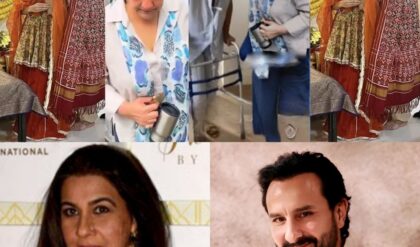
In a recent interview with News 18, Imtiaz Ali, buoyed by the success of “Amar Singh Chamkila,” delved into the possibility of collaborating once more with Kareena Kapoor, his former leading lady in the beloved film “Jab We Met.” Ali’s reflections offered a poignant insight into the dynamics of creative partnerships and the quest for meaningful storytelling.
Expressing a sentiment of mutual admiration for Kapoor, Ali articulated his reluctance to embark on a new collaboration unless it offered something substantially different or superior to their previous work together. He emphasized the importance of maintaining artistic integrity and avoiding the temptation to capitalize on past successes for the sake of nostalgia.
Despite their shared fondness for collaboration, Ali lamented the lack of suitable projects that met their stringent criteria for uniqueness and quality. Dismissing speculation surrounding a potential sequel to “Jab We Met,” Ali underscored the necessity of preserving the legacy of their iconic film while remaining open to exploring fresh creative avenues in the future.
Meanwhile, Kareena Kapoor, recently appointed as the National Ambassador by UNICEF India, offered insights into her parenting approach at an event in Delhi. Her remarks provided a glimpse into her efforts to instill values of equality and respect, regardless of gender, in her sons.
Kapoor elaborated on the example set by her husband, Saif Ali Khan, in demonstrating respectful behavior towards women, highlighting the importance of leading by example in shaping her children’s values. She recounted a poignant exchange with her son, Taimur, about her work commitments, emphasizing the delicate balance between professional responsibilities and family time.
This glimpse into Kapoor’s parenting philosophy reflects a broader commitment to nurturing values of equality and respect in her children, encapsulating her dedication to both her family and her career aspirations. As she continues to navigate the complexities of parenthood and public life, Kapoor’s insights serve as a reminder of the importance of fostering a supportive and inclusive environment for the next generation.





